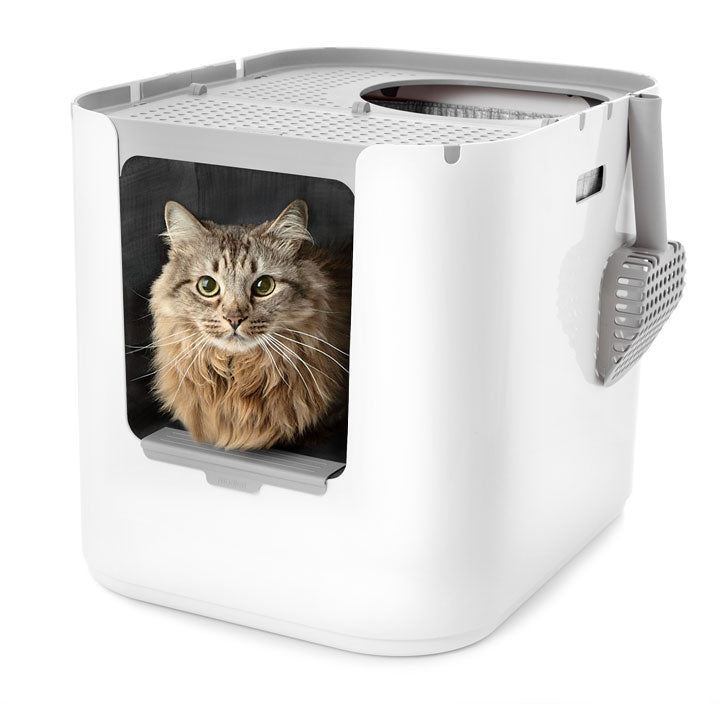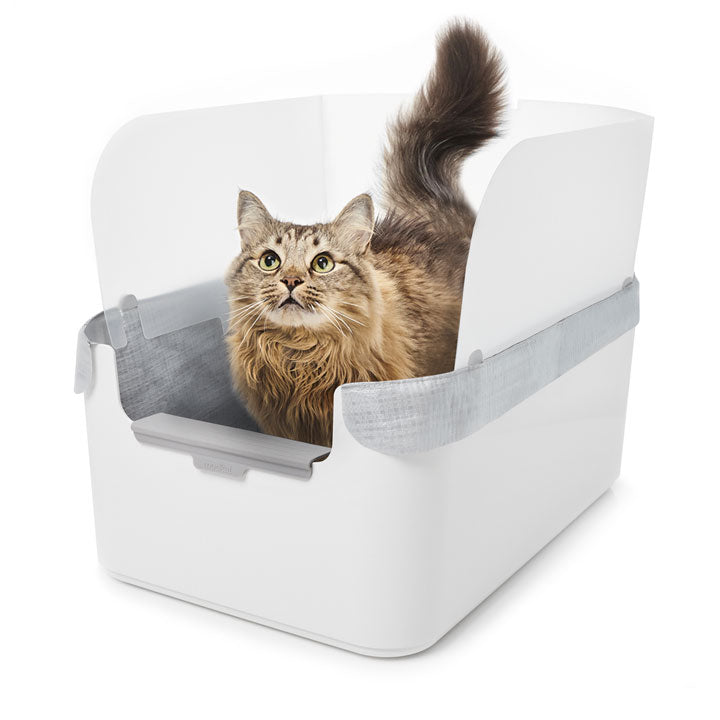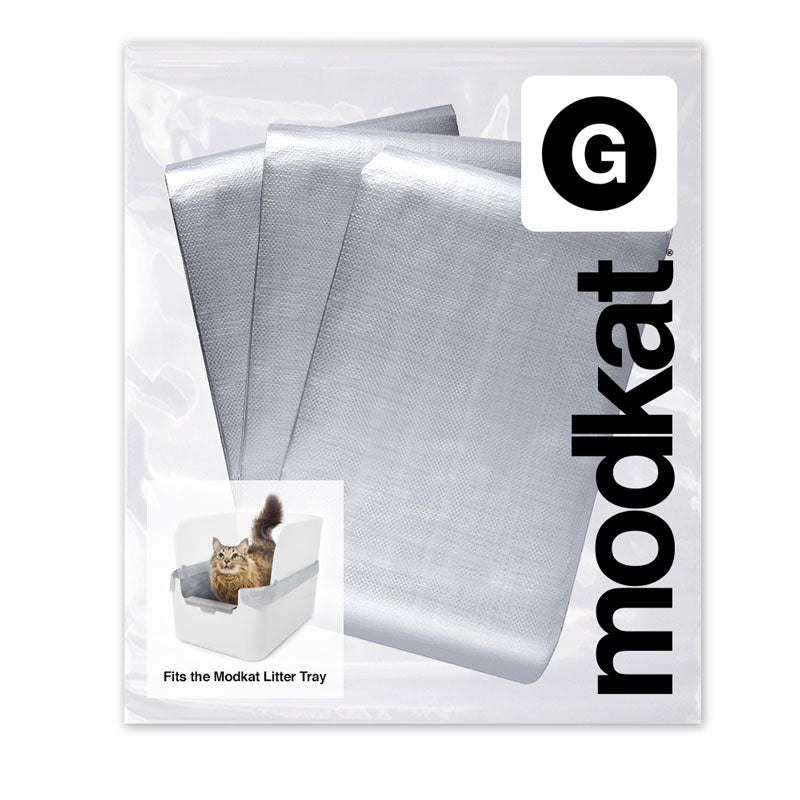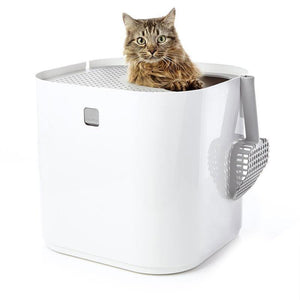Litter Boxes
Accessories
Liners
Are cats sentient beings?

When your cat head-bunts you, purrs in your lap, or kneads the soft sweater you’re wearing, she is expressing her affections for you in her own unique way.
If your cat pees on your pillow, attacks your feet from behind the curtains, or withdraws, she could be feeling anger, boredom, fear, or sadness. Anyone who shares space with a kitty can attest that cats are clearly sentient beings with the capacity to feel a throng of emotions like people although maybe not at the same depth or range as their human counterparts.
Experts say a cat’s gray matter shares some likeness to a human being’s brain, suggesting cats can feel and sense, which manifests itself through a variety of behavioral responses. Our feline friends can experience happiness, for example, or fear, jealousy, depression, anger, grief, and playfulness.
Can they also express love?
Well, if love means showing affection, an attachment, or loyalty, your cat is certainly a love bug. Sure, he might be compelled to show his “love” for you because he depends on you for food and shelter, but when he’s in the mood to play, wants stroking, or senses you’re ill or sad, your cat will show up of his own volition for an opportunity to engage with you. That’s a pretty good indication your kitty is feeling something other than craven dependence on you for food and shelter.
So which emotions are most common in cats and how do these animals typically express their feelings?
- Fear | Welcome a stranger into the house, power up the vacuum cleaner, or drop something to the floor, and your cat makes a mad dash for his hiding place behind the sofa. For most living and breathing creatures, including cats, fear is a built-in mechanism in response to being startled or taken by surprise.
- Anger | Tease a cat long enough, allow another animal to invade his space, or touch him in an unwanted spot on his body and you’re likely to trigger aggression. An angry cat can be dangerous. Biting, scratching, and pouncing are all a feline's normal responses to anger. If you share life with a cat, you’ve certainly witnessed an angry kitty on more than one occasion.
- Love/affection | There’s no doubt a cat who follows you to the bathroom, climbs into your lap as soon as you sit down or curls up next to you in bed is hopelessly devoted to you and shows signs of feeling attached. Cats express their affections for you in different ways, but it’s relatively easy to determine when your cat is happy and content with you. She might purr, knead or rub her cheeks against you.
- Sadness/grief | Cats have been known to experience bouts of sadness in response to a loss and even to die of a broken heart when their companion passes away. They also have shown signs of depression such as withdrawing, eating less or losing interest in playtime, especially if they are left alone too often. They crave social interaction and without it will express demonstrative behaviors to let you know they’re lonely or sad.
- Loyalty/devotion | Driven by strong feelings for their human parent, some lost cats have been known to travel miles to find their way back home. Not only does that speak to their uncanny homing ability, but it also supports the notion they feel loyalty and devotion so much so they’ll journey a long distance to return to you.
As a cat's parent, it’s important to consider your pet's feelings and limitations. Unlike human beings, cats are unable to vocalize, but by reading body language and behaviors, you can somewhat interpret what they might be feeling and give them an extra dose of playtime or affection if you sense they’re being emotional. 🐈
“It looks nicer than any other hooded or open option we considered.”

Purrr News.
Join our email list and get exclusive access to new products, the best cat litter box health articles, and 10% off your first order!
Similar products related to this blog:
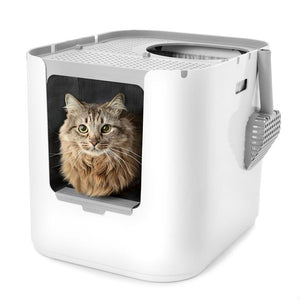
"It looks nicer than any other hooded or open option we considered."

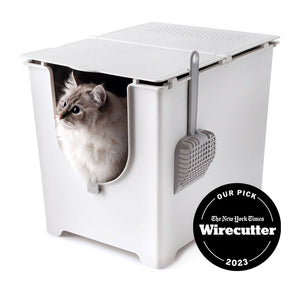
"This litter box keeps everything in, nothing gets out the sides."
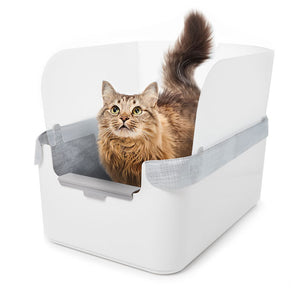
"My beautiful ragdoll cat and I both love the new Modkat Litter tray!"

